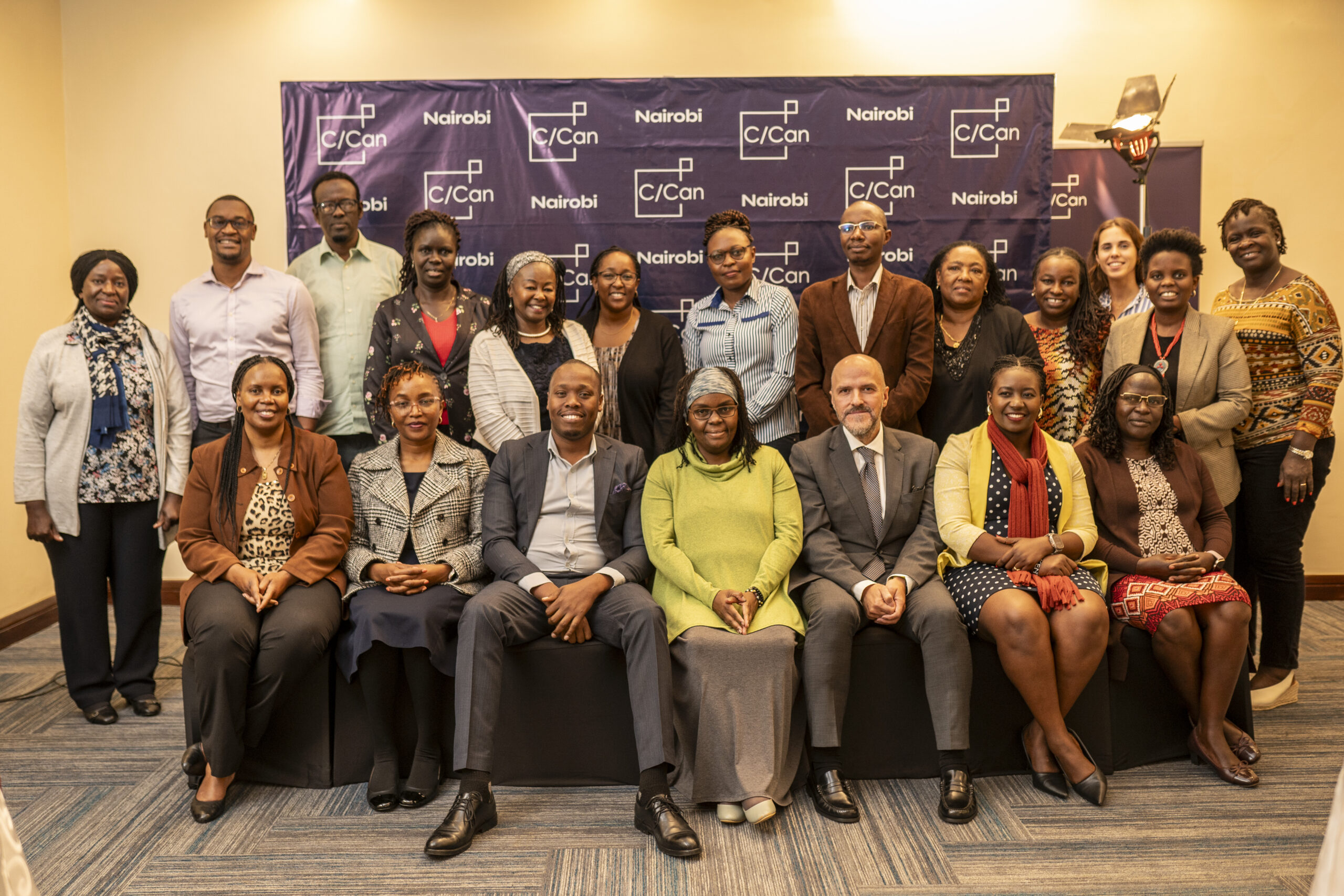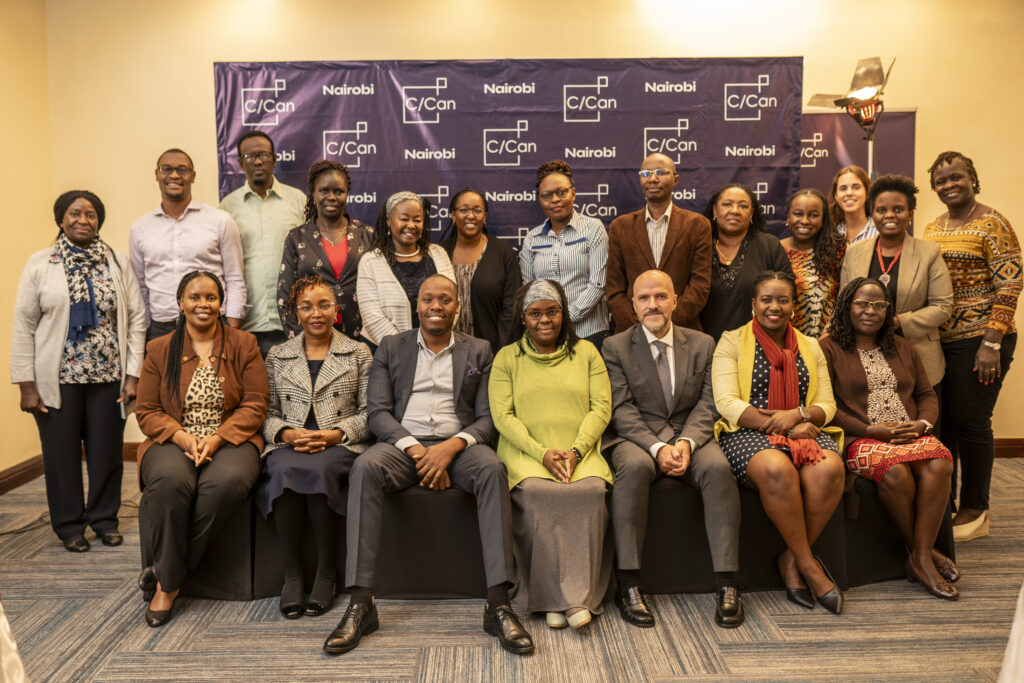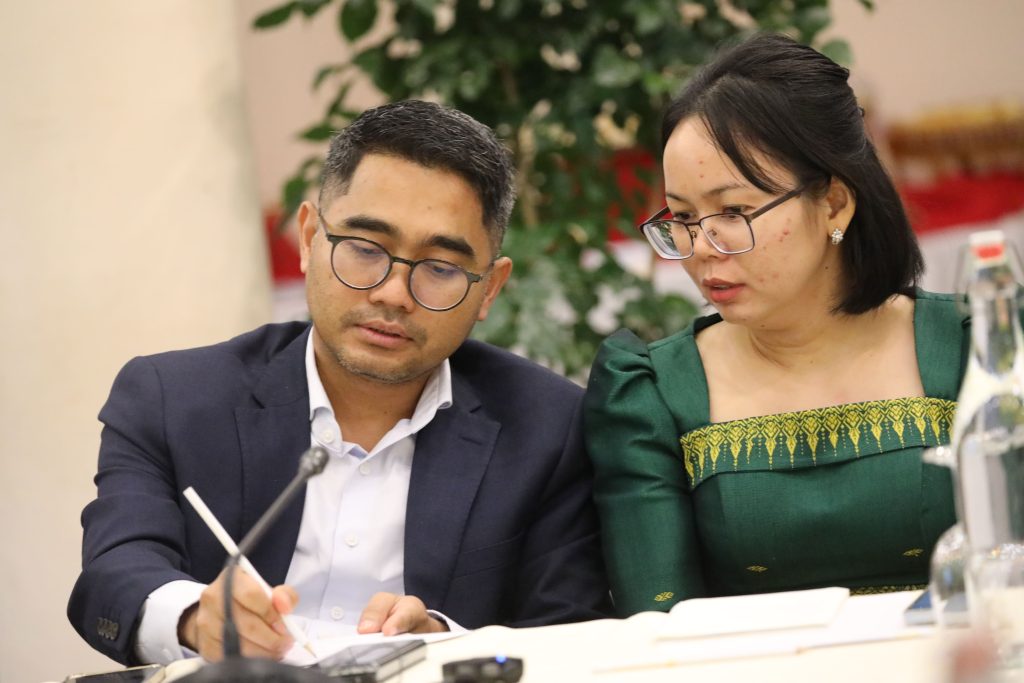
In a bid to gather comprehensive data that will contribute meaningfully to the city’s cancer care strategies, C/Can has facilitated the creation of a forum that will help overcome the challenges of coordinating the various actors involved in cancer care in the city. In September, a collective of Kenyan cancer care professionals and advocates representing diverse institutions, sectors, and areas of expertise convened within the C/Can Nairobi City Executive Committee (CEC). This committee, functioning as a multisectoral governance body within each city involved in the initiative, bears the responsibility of
decision-making and drives the localisation of solutions.
These experts are drawn from the Ministry of Health and associated state Agencies, the Nairobi County Government, non-state actors, professional bodies, academia, civil society groups, and the Kenya Healthcare Federation.

In Nairobi, the committee is under the leadership of Suzanne Silantoi, the Nairobi County County Executive Committee Member for Health, Wellness, and Nutrition. With the Nairobi County government’s collaboration, C/Can’s focus on data-driven needs assessments, fostering collaboration, and emphasising documentation and advocacy has set the stage for Nairobi to implement effective cancer care interventions.
There has been a historical sub-optimal engagement between government and private health facilities in Nairobi, which has made it difficult to gather comprehensive critical health data for advancing healthcare in the capital city.
Speaking during a visit to the C/Can offices in Geneva during the World Health Assembly, Ms. Silantoi welcomed this initiative, citing that having a needs assessment that is specific to Nairobi would be critical in how cancer interventions are identified and implemented in the county.
C/Can has helped us drive down to the data and to the actual research that gives us more information about what is needed by allowing us to completely understand our context for just the city. Particularly, a lot of times you’d find details that are countrywide but are not specific to the city, but the city has very unique needs compared to the rest of
the country,
said Ms. Silantoi.
Affirming that the needs of Nairobi are very diverse and have never been contextualized for Nairobi as a city alone, Ms. Silantoi commended the willingness of different stakeholders to come together to work towards a common goal.
The C/Can Nairobi City Executive Committee and the local technical experts have completed the needs assessment phase, which involves data validation and the development of a draft situational analysis outlining the most pressing challenges and the proposed actions to improve cancer care.
For the first time, Nairobi has a city-specific understanding that allows stakeholders to tailor cancer interventions precisely where they are needed most. This partnership is not just transforming how they collect and use data; it is setting the stage for Nairobi to lead the way in cancer care across the region
said Sophie Bussmann-Kemdjo, Regional Director for Africa & Europe.
This draft situational analysis will serve as a foundation for developing a strategic plan for Nairobi, aimed at launching and executing key projects beginning January 2025. By identifying current challenges and opportunities, the analysis will guide the creation of targeted initiatives that address Nairobi’s unique cancer care needs and lay the groundwork for effective and sustainable interventions.
According to the 2021/2022 National Cancer Registry Data report on cancer in Kenya, a total of 27,092 cancer deaths and a total of 42,116 new cases were recorded. Further, the report states that 70% of cases are diagnosed in advanced stages, with only 23% of cancer patients accessing cancer management services required. Nairobi is listed as the leading county in cancer cases.
This collaboration between C/Can and Nairobi’s health sector marks a turning point in the fight against cancer. With a clear roadmap in place, Nairobi is poised not only to revolutionise its cancer care but also to set a new standard for cities across Africa.





